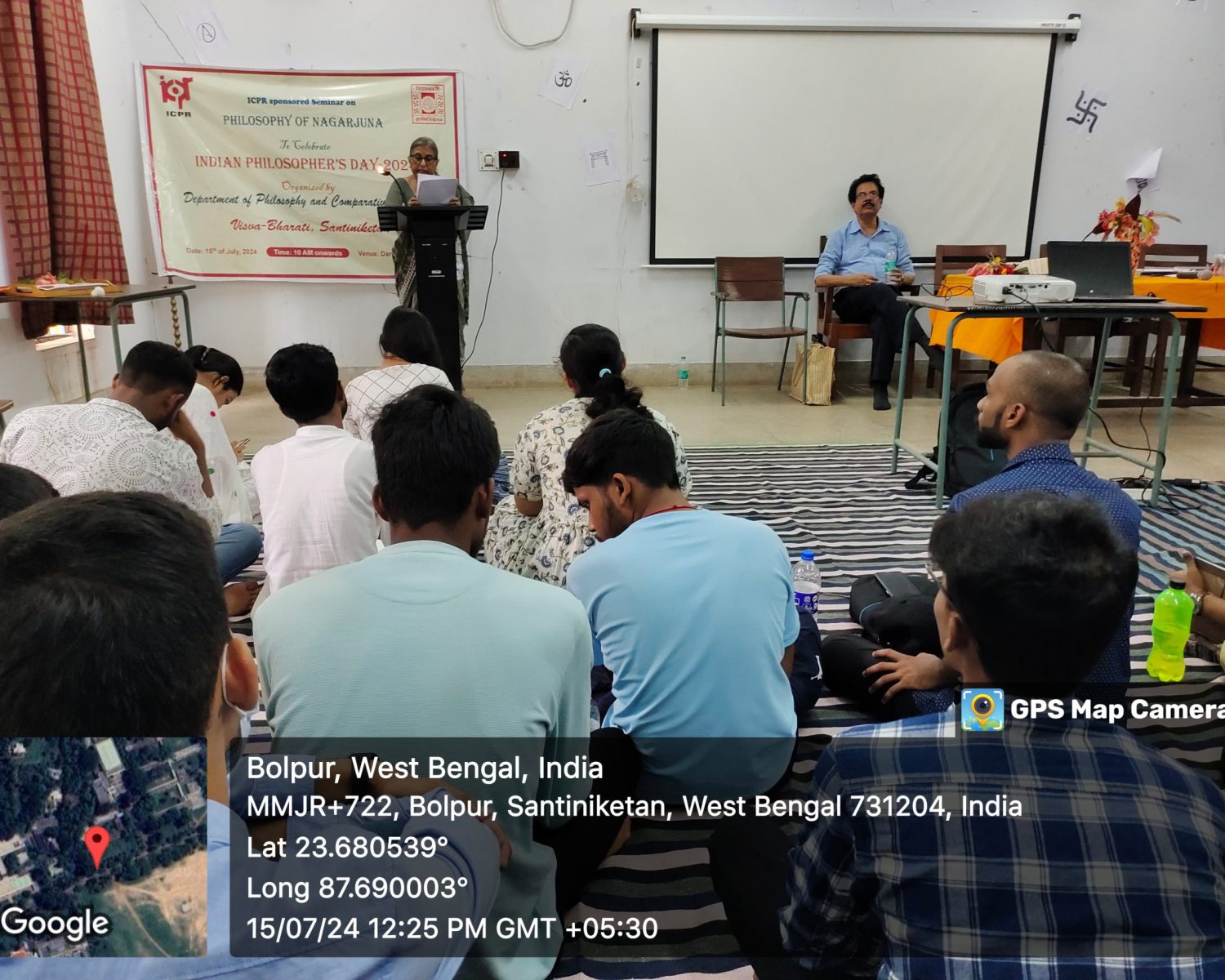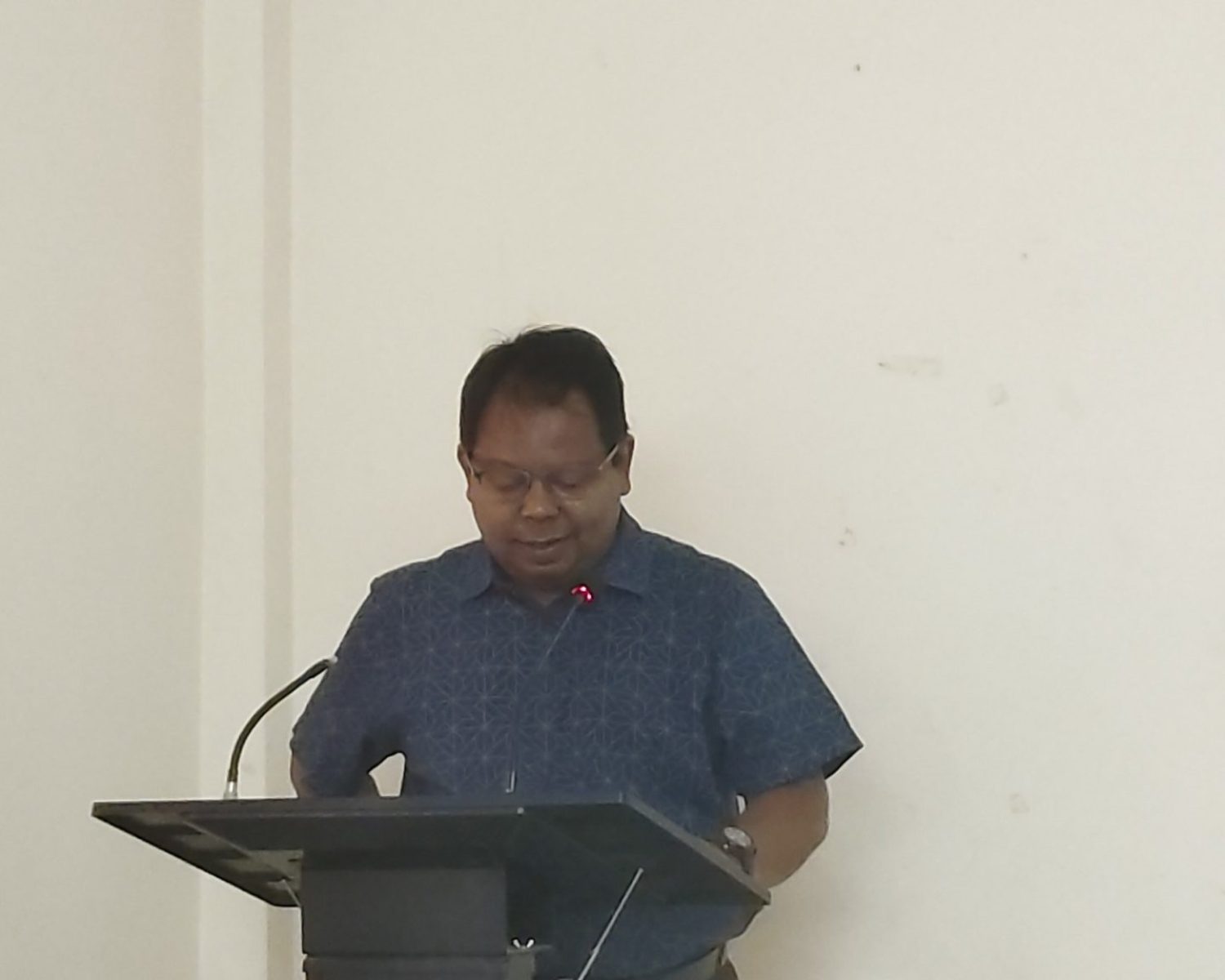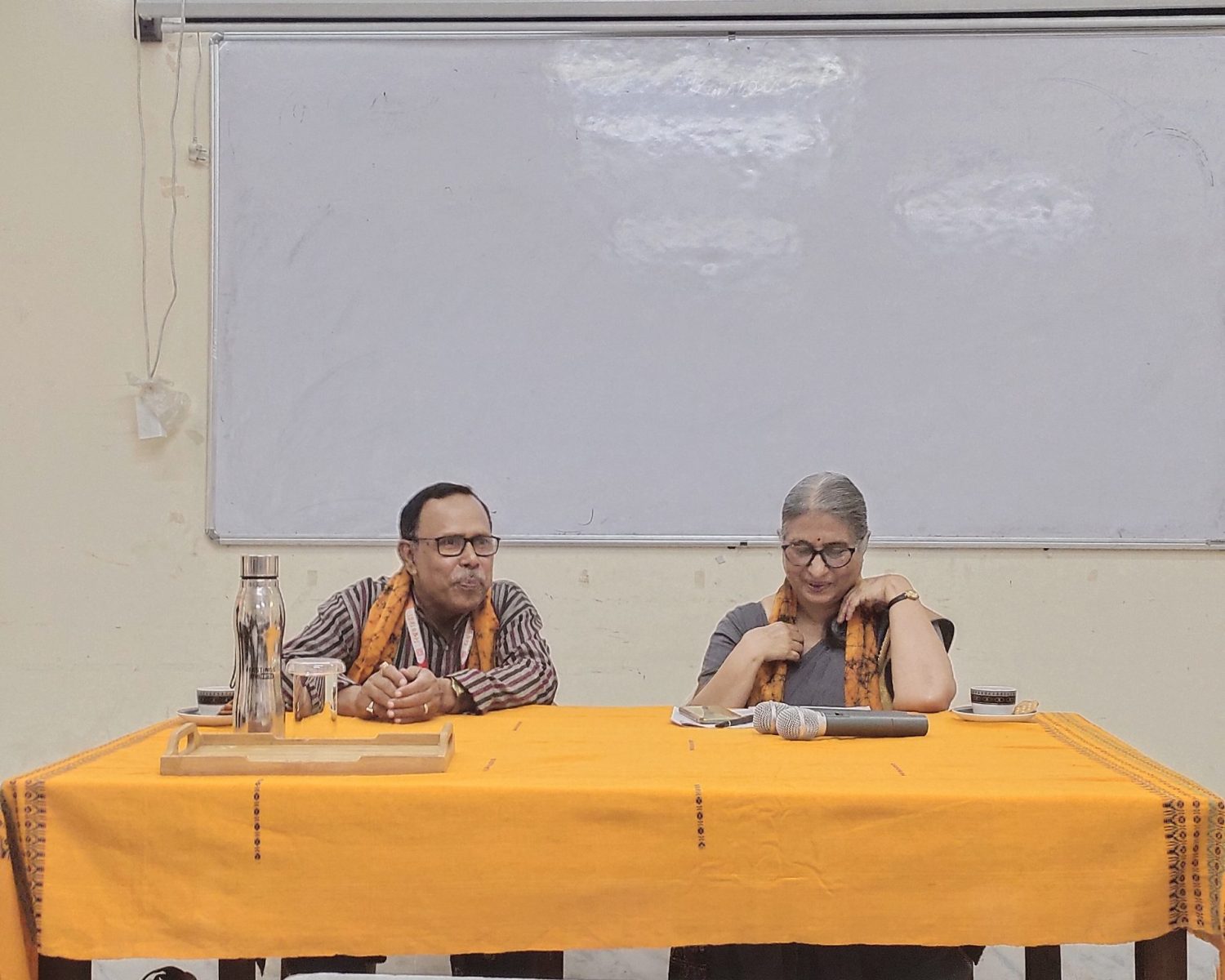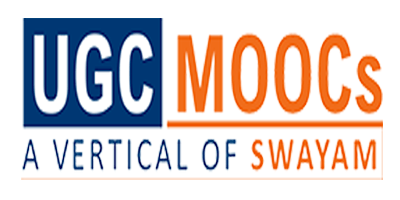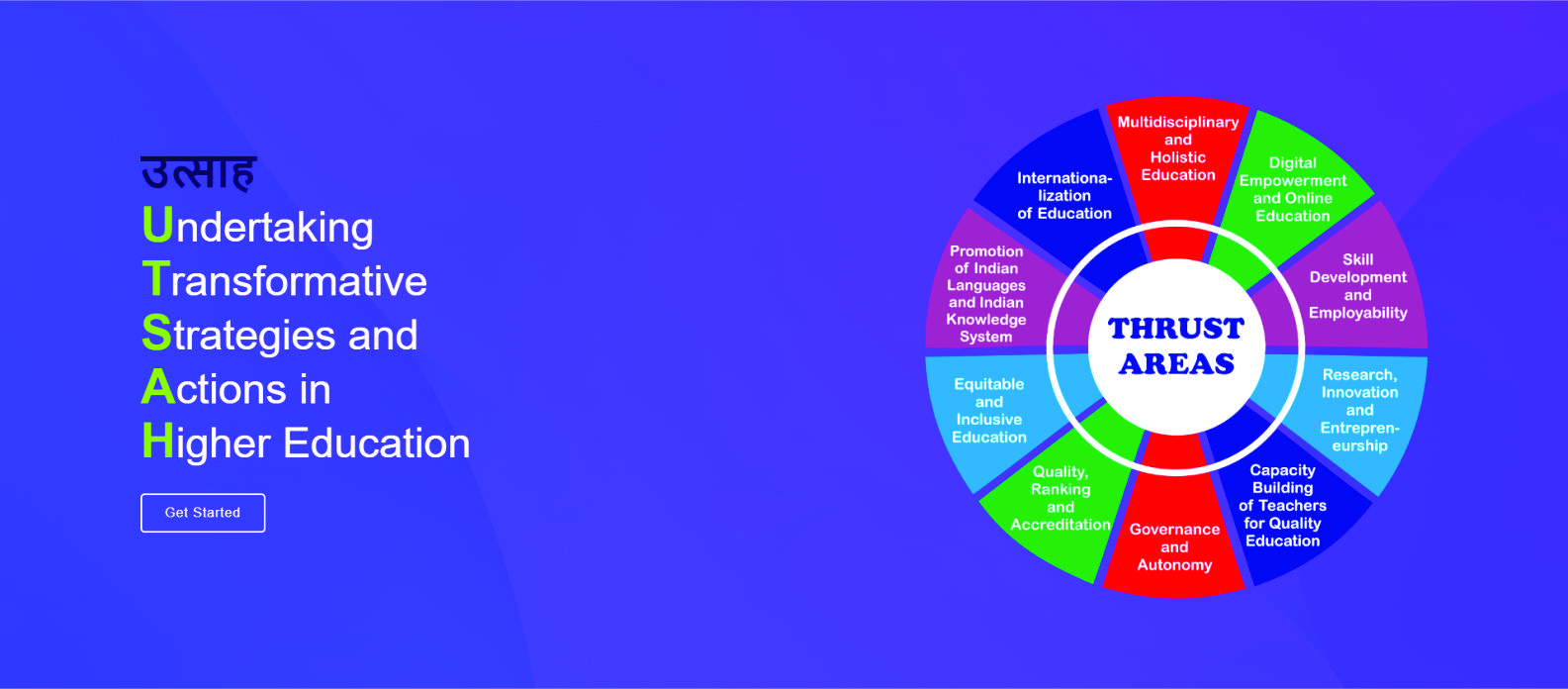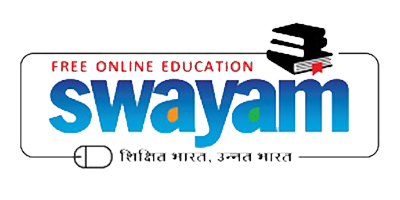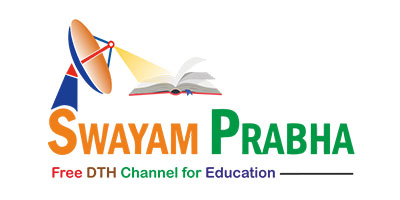
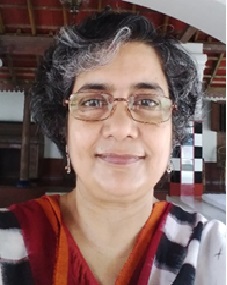
HEAD
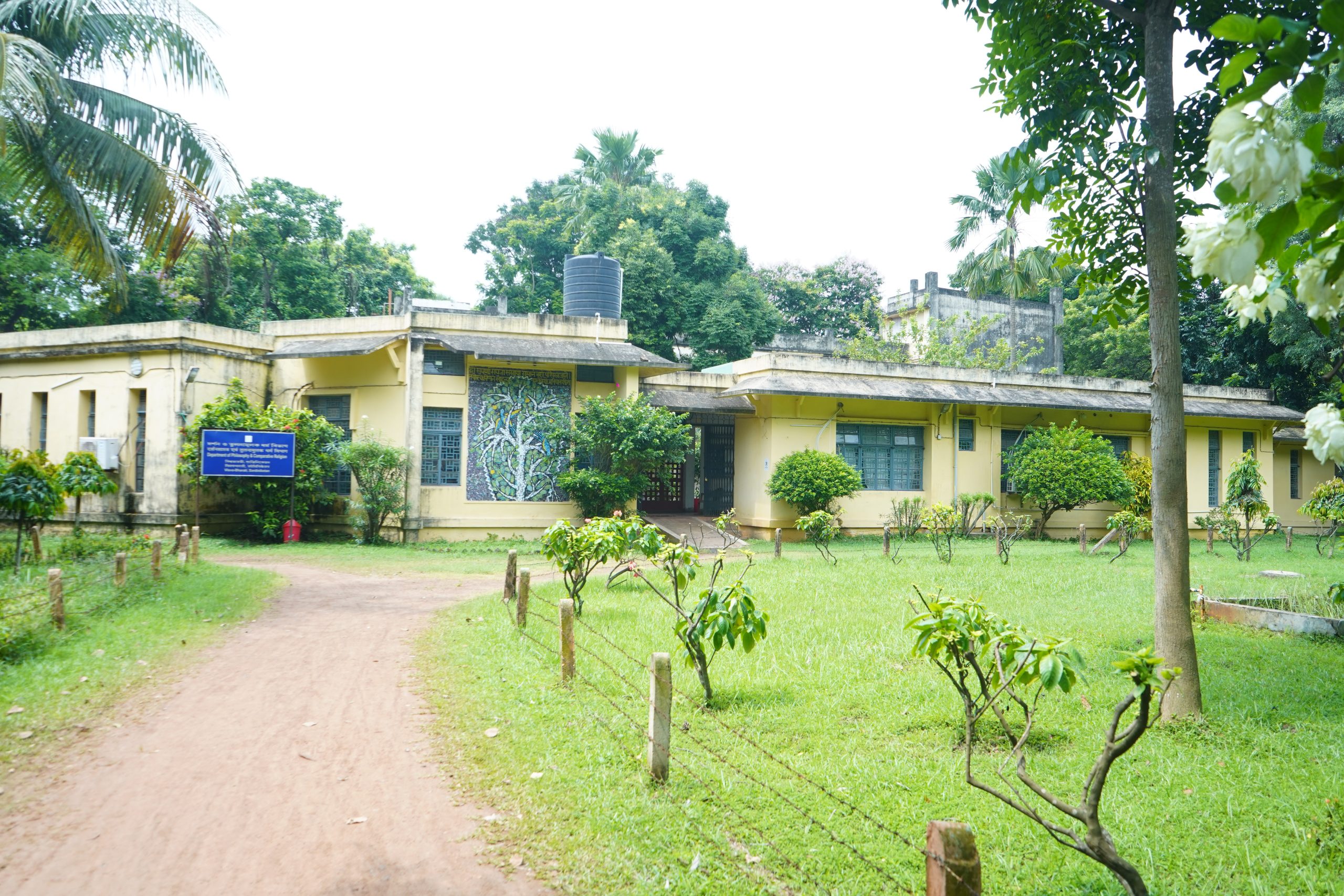
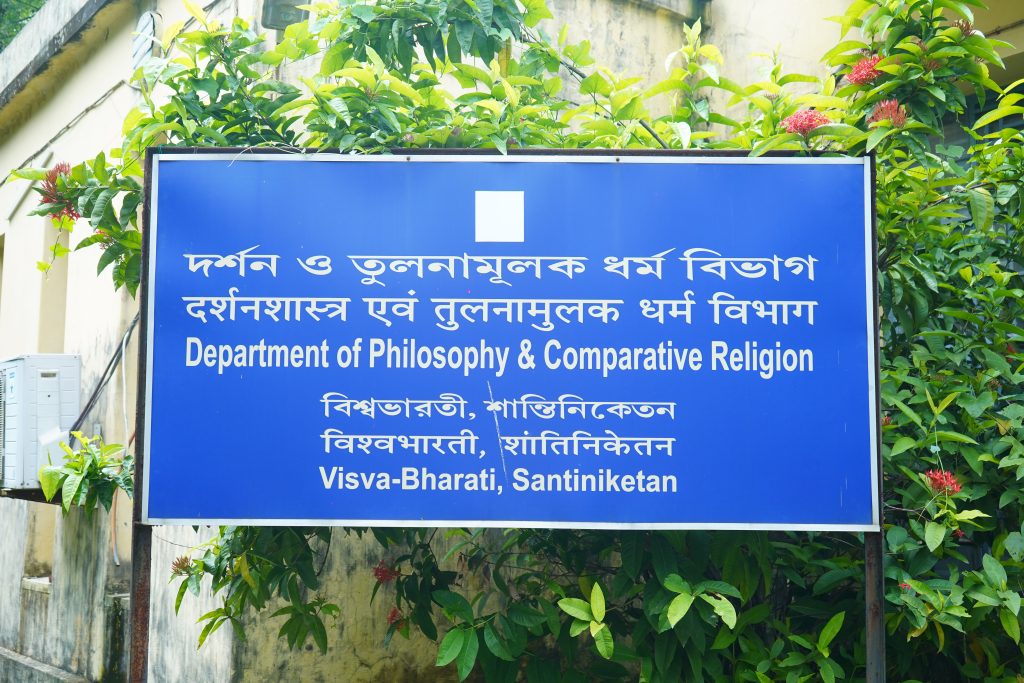
PHILOSOPHY AND COMPARATIVE RELIGION
About The Department
The conceptual foundation of the Department of Philosophy and Comparative Religion was laid as early as in July 1919 when Visva-Bharati was inaugurated as the unique home for all cultures. The programme offered by what was then the Department of Higher Studies included provision for study and research in various aspects of Dharma-Shastra, Purana and Hindu Religion. With Visva-Bharati becoming a registered public body and adopting a constitution of its own on 23rd December 1921, the Department of Higher Studies, then renamed Uttar Vibhaga, expanded its academic programme by including Philosophy as an independent area of study besides Logic, Nyaya and Vedanta (Upanisads). The study-cum-research programme in philosophical subjects received a fresh impetus when the academic wing of Visva-Bharati was reconstructed in 1926. The erstwhile study-cum-research centre was then transformed into a full-fledged School of Research called Vidya-Bhavana. This institute of higher studies and research soon made available facilities for original research in a number of philosophical areas
such as Buddhisim, Jainism and Indian Mysticism. The years that followed were marked by high-quality research activities in Philosophy with the participation of scholars like Muni Jui (Jainism), Brahmachari Govinda – a German Buddhist monk (Buddhist Studies), Professor C.L. Fabri, a Hungarian Sanskrit Scholar, Countess Hamilton (Indian Philosophy), and Professor Phanibhusan Adhikari (Indian Philosophy). Yet another change took place in 1951 when Visva-Bharati became a Central University by an Act of Parliament. As the curriculum, teaching and examination-system of the University began to assume the form prevalent in other universities in the country, Vidya-Bhavana, originally a School of Research, started Undergraduate and Postgraduate courses in a number of subjects including Philosophy and Comparative Religion. That was how today’s Department of Philosophy and Comparative Religion came into being.
In April, 1964, the Department was adjudged as Centre of Advanced Study in Philosophy. The Centre was designed to promote higher studies and research in metaphysics in collaboration with scholars from other universities in and outside the country. The scholars working in the Centre had an extensive choice of subjects ranging from problems of perception to problems of Religion. The visiting fellows at the Centre from abroad included such eminent figures as Professor H.D. Lewis, Professor John Hick, Professor George Burch and Professor W.H. Walsh. The first director of the Centre was Professor Kalidas Bhattacharya, an eminent philosopher himself and he also served as the Vice-Chancellor of the university. The Department received Special Assistance Programme for 5 years from 1985 to 1990. One of the principal aims of the Department is the establishment of effective communication between the scholars of the Department and the others outside. This communication has been established through International and national Seminars organized by the Department and also through the work of visiting fellows. At present the Department offers courses both in Philosophy and Comparative Religion, each covering Under Graduate, Post Graduate and Doctoral Programme. The Department offers a one-year Foreign Casual Course in Indian Philosophy. At present, the department is in the process of conducting a new certificate programme on The Art of reasoning: Indian and Western thought to cater to the needs of various stakeholders who are interested in logic and critical thinking and those who are preparing for competitive examinations.
The Department has a well-organized library located in Darshan Sadan itself. Its holdings reach over 13000 volumes, with an additional extensive collection of back-issues of different international Journals. Besides a number of foreign periodicals are received regularly. The collection of books on Religion along with texts written in Sanskrit, Pali, Prakrit, Chinese and Tibetan are housed in the Central Library of the University.
The Department is now in the process of digitizing the old volumes of The Journal of Philosophy and uploading them in the webpage of the university library for the benefit of philosophically curious minds and towards aiding and promoting scholarly researches. The revival of the publication of the journal is in the pipeline. Also, the department is conducting weekly lectures, under the banner of Teachers’ Seminar, by the teachers and students of various departments of Visva-Bharati, as an inter-disciplinary venture. Apart from this, the department hosts Reading Club, on the first Thursday of every month, to collectively read and discuss the texts with social and intellectual relevance. With the initiatives of the students of the department, a weekly programme, Hor Sereng, is held every Tuesday, under the aegis of the initiative of the university towards social activity awareness programme.
We welcome the students from India and abroad to join the courses offered by the department to have a rich learning and research experiences on multiple areas of philosophy and religious studies.
Academic Calendar
Achievements
Alumni Association
Upcoming Seminar
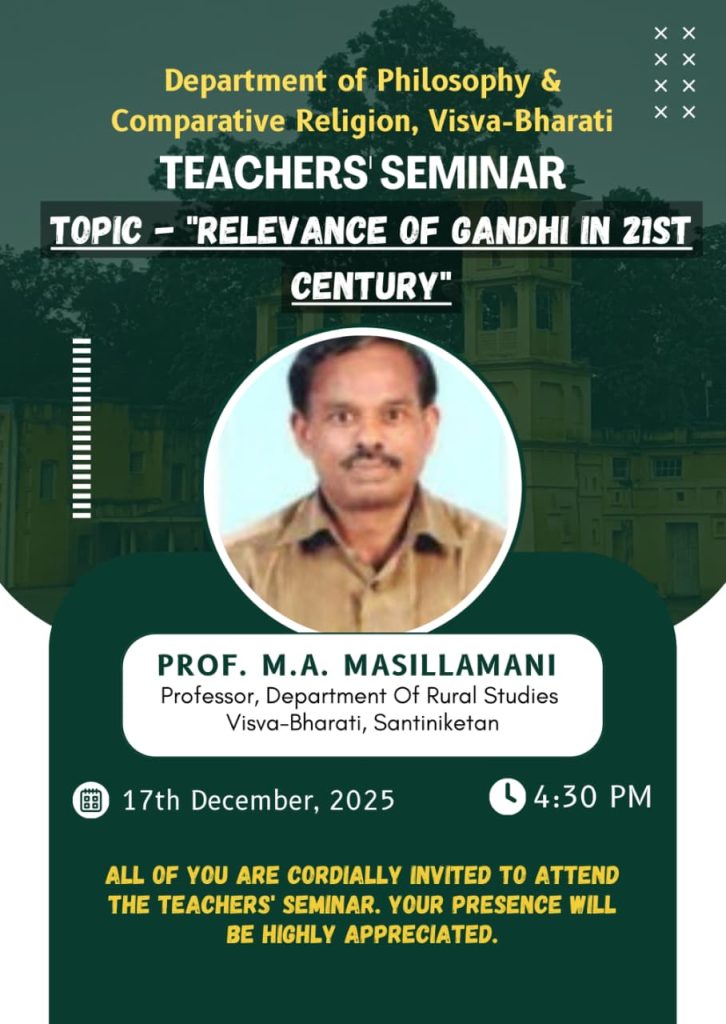
Seminar - 2025
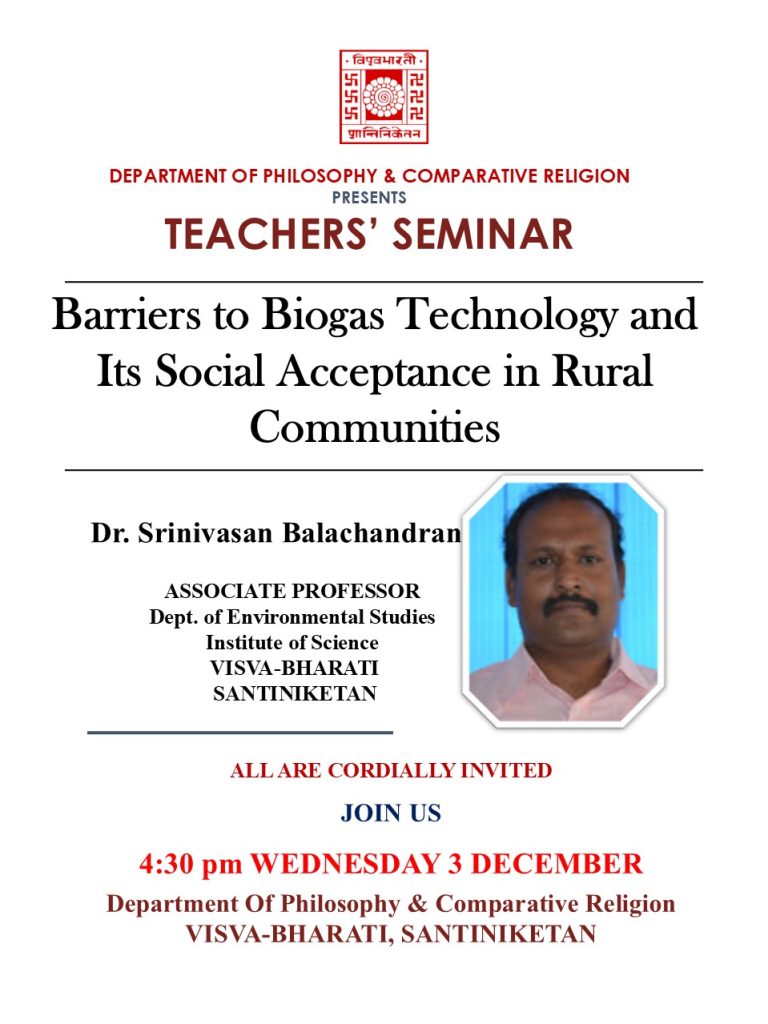
Seminar - 2025
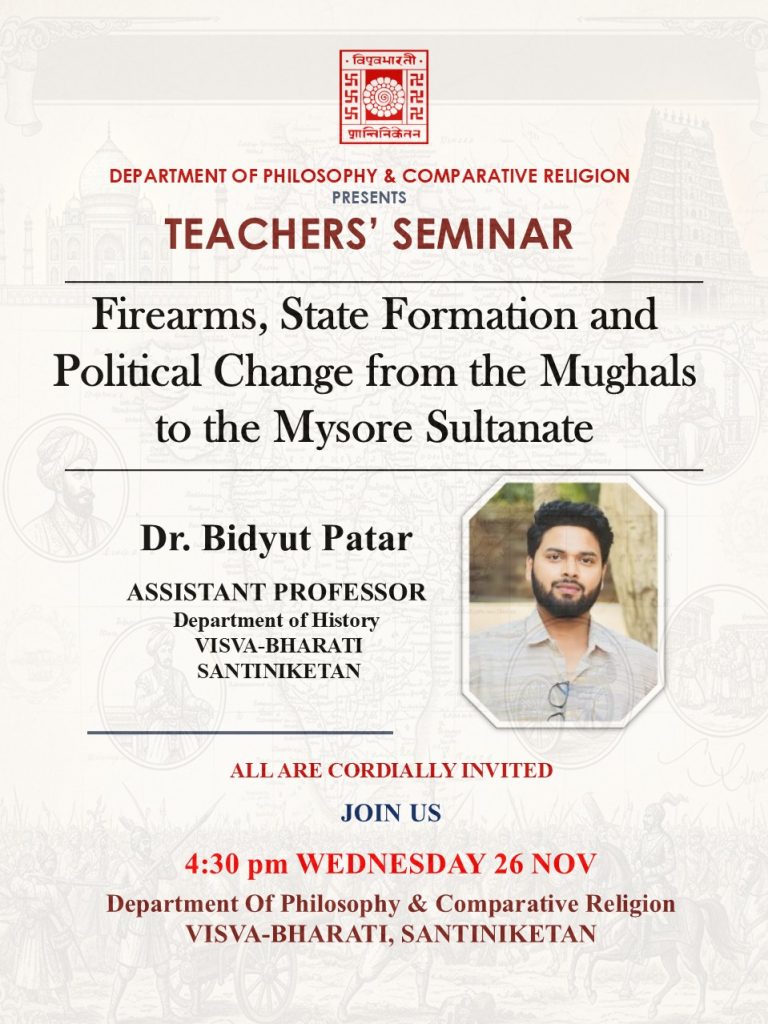
Seminar - 2025
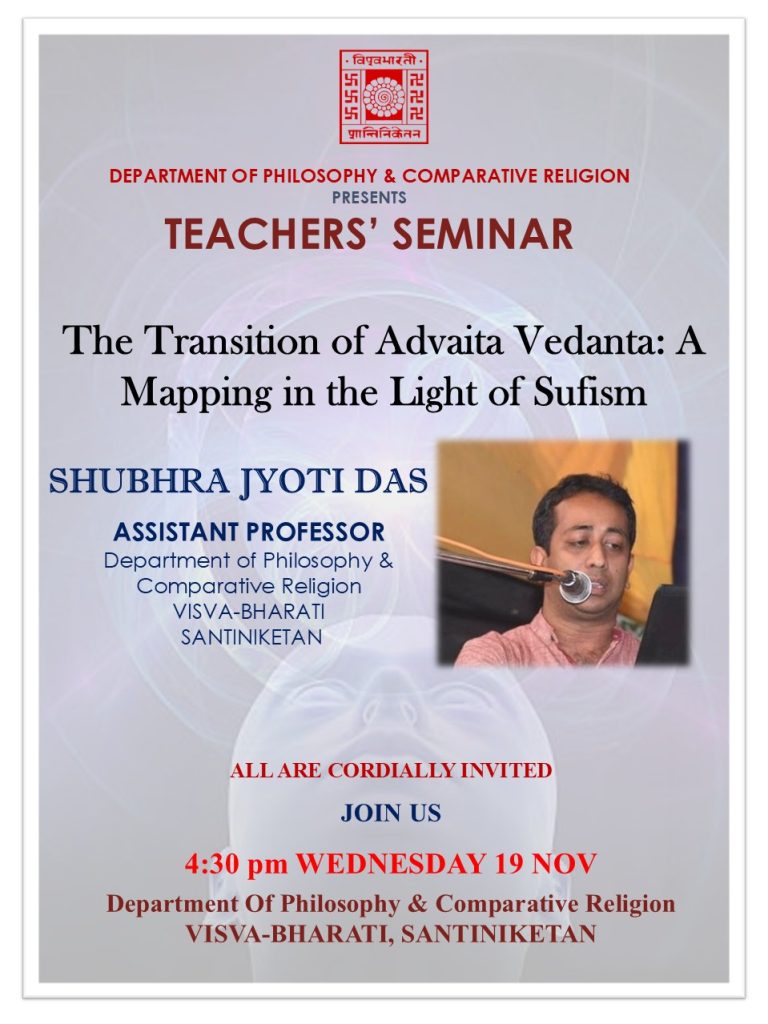
Seminar - 2025
When we look at Advaita Vedānta in the 21 st Century, we find that any form of bhakti can be a way to experience the non-dual Brahman. Ramana Maharshi’s ‘Upadeṣa Sāra’ is an attestation to this claim. But that was not the condition of Advaita tradition in its inception. Saguṇa-Bhakti was considered only as a means for the purification of mind, which makes a seeker of Truth eligible to tread the path of knowledge. The talk examines the causes of this transition in the light of Sufism; and, argues why Sufism can be considered as a frame of reference to understand this transition after the classical period.

Seminar - 2025
Climate change is not just an environmental crisis – it is a story of unequal voices and unseen resilience. While the planet heats up, so do the daily struggles of women walking farther for water, protecting harvests from drought, or rebuilding homes after floods. Yet, these same women are quietly rewriting the narrative of survival through local knowledge, community care and innovation.
This talk explores how communication can transform such lived experiences into collective strength. Moving beyond charts and statistics, it reimagines climate change through a gender lens – one that recognises women not as victims but as vital communicators of change. Drawing from field stories, global insights and media examples, the session highlights how inclusive storytelling can bridge the gap between awareness and action.
Blending theory and interaction, it engages the audience in questioning: Whose stories shape our understanding of climate? And how can the media cultivate empathy instead of anxiety? The session invites listeners to discover how everyday acts of resilience—when amplified through sensitive and participatory communication – can ignite a shared responsibility for a sustainable future.


